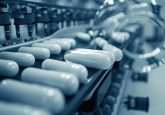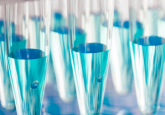EMD Millipore publish White Paper
Paper published on bioanalytical assays for use in biosimilar development.
With the recent rise and rise of biosimilars, EMD Millipore (Billerica, MA, USA) has published a White Paper detailing assays that can be used to compare the pharmacodynamics of biosimilars.
The biosimilar industry is one of the most rapidly expanding areas of research. This is largely due to a combination of major patents nearing expiration and restrictive drug-development regulatory guidelines being implemented by the European Medicines Agency and US FDA. As research into the development of biosimilar therapeutics is on the rise, this has generated an increasing demand for reliable comparative bioanalytical assays.
This new publication aims to provide an overview of the novel ligand-binding assays that have been developed as a result of the regulatory guidelines and technical aspects of comparability studies, and how these assays might lead to a more effective development process for biosimilars.
In particular, the paper showcases two bioanalytical approaches that rely on measuring ligand binding to compare how pharmacodynamics can vary between biosimilars. The paper explains how flow cytometry and surface plasmon resonance can be used to quantify the binding of monoclonal antibodies to molecules mediating cytotoxicity. In the example data presented in the paper, the assays are used to quantify the binding of infliximab and alemtuzumab.
Critically, all new biosimilars must be able to prove that any variances from the innovator drug are not clinically significant. Both of these assays can be used to provide preclinical data regarding the physiological interactions and properties of the drug being studied, all before the need for animal experimentation. As the development process of a biosimilar therapeutic can be very expensive, preclinical data able to measure potency would be indispensible and a major financial incentive for developers.
The comprehensive overview published by EMD Millipore, the Life Science division of Merck KGaA (Darmstadt, Germany), is entitled “Effective In Vitro Bioanalytical Assays for Comparing Pharmacodynamics of Biosimilar Monoclonal Antibodies”.




